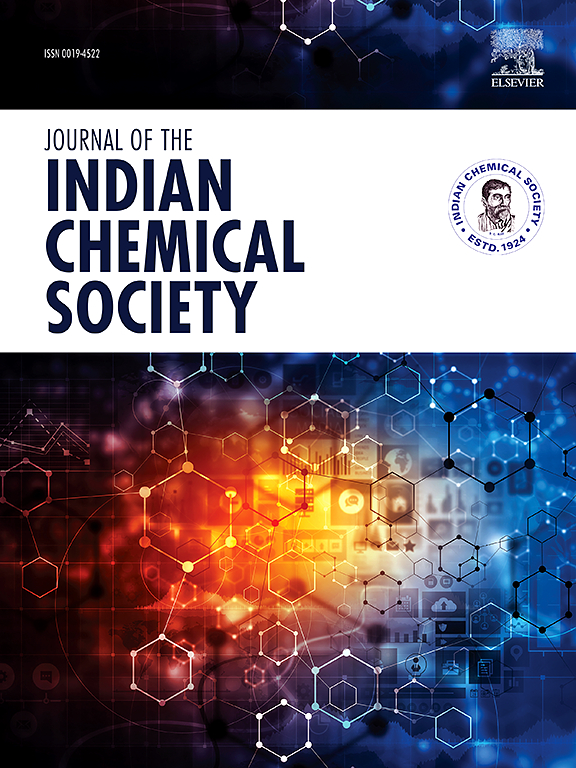从作为可持续木质纤维素生物质的小麦秸秆中生产乙酰丙酸的可再生战略
IF 3.2
4区 化学
Q2 CHEMISTRY, MULTIDISCIPLINARY
引用次数: 0
摘要
乙酰丙酸(LA)是12大高附加值通用化学品之一,主要用于合成各种化学品、燃料和聚合物等产品。开发利用木质纤维素生物质生产乙酰丙酸的可持续途径是一个重要的研究领域。本研究展示了超声波辅助麦秸碱预处理后获得的单糖直接用于合成乙酰丙酸,并阐明了水热转化过程中各种操作因素对LA产率的影响。研究的操作参数范围包括时间(0-120min)、温度(140-180°C)、固体负荷(4 - 10%)、搅拌速度(200-450 RPM)、酸浓度(3 - 8%)和酸类型(HCl、H3PO4、H2SO4)。本研究确定的最佳工艺条件为:温度170℃,糖负荷5%,H2SO4浓度4%,反应时间120 min,乙酰丙酸收率最高(63.5%),糖转化几乎完全。本研究清楚地揭示了麦秸可持续转化为乙酰丙酸,并论证了水热转化过程中产生最大LA的最佳操作条件。本文章由计算机程序翻译,如有差异,请以英文原文为准。

A renewable strategy for producing levulinic acid from wheat straw as sustainable lignocellulosic biomass
Levulinic acid (LA) is one of the top 12 value-added versatile chemicals and basically used to synthesize diverse range of products such as chemicals, fuels, and polymers. Developing sustainable routes for the production of levulinic acid using lignocellulosic biomass is an important research area. The current study demonstrates the direct usage of monosaccharides that are obtained following ultrasound assisted alkali pretreatment of wheat straw for the synthesis of levulinic acid also elucidating the effect of various operating factors of the hydrothermal conversion process on LA yield. The range of operating parameters investigated in the study include time (0–120min), temperature (140–180 °C), solid loading (4–10 %), agitation speed (200–450 RPM), acid concentration (3–8 %), and type of acids (HCl, H3PO4, H2SO4). The optimal parameters established in the study included temperature of 170 °C, 5 % sugar loading, and 4 % H2SO4 concentration that resulted in the highest levulinic acid yield (63.5 %) during 120 min, with nearly complete sugar conversion. The current study clearly revealed the sustainable conversion of wheat straw into levulinic acid with a demonstration of the best operating conditions during the hydrothermal conversion process for maximum LA formation.
求助全文
通过发布文献求助,成功后即可免费获取论文全文。
去求助
来源期刊
CiteScore
3.50
自引率
7.70%
发文量
492
审稿时长
3-8 weeks
期刊介绍:
The Journal of the Indian Chemical Society publishes original, fundamental, theorical, experimental research work of highest quality in all areas of chemistry, biochemistry, medicinal chemistry, electrochemistry, agrochemistry, chemical engineering and technology, food chemistry, environmental chemistry, etc.

 求助内容:
求助内容: 应助结果提醒方式:
应助结果提醒方式:


